The rise of localism; a nascent self-determination movement; candidates disqualified on political grounds from running for Legislative Council seats; Umbrella Movement leaders and grassroots activists getting elected to Legco… and then six of them getting disqualified; the elaborate charade of the Chief Executive “election”; prosecutions and jailings….
This does not look like a stable, legitimate political system based on the will of the people.

Hong Kong has been in slow-burn political crisis for many years, but after the Umbrella Movement, the injustice and illegality of its formal political system have become more acute and led to alarming developments, including greater persecution.
The Party
From that, one might conclude that the 2014 struggle for genuine universal suffrage “did no good”. The Communist Party and Hong Kong government refuse to even acknowledge basic structural problems of governance, let alone address them.
The system is cracking while the rulers pretend everything is fine. Controlled by the largest dictatorship in the world, the system purports to have aspects of liberal democracy, while the Chief Executive, is appointed by the Party to do its bidding among a populace ever more resistant to Party imposition.
The question is whether it will reach a point at which it can no longer bear the burden of its contradictions.
It doesn’t suit the Communist Party to have Hong Kong in such a mess, which reflects poorly on its rule, but the Party far prefers the status quo to any of the alternatives, in particular, to genuine suffrage and autonomy.

It hopes to tighten its grip slowly but surely on virtually every area of society, but in doing so, it may strangle the city entirely — the Party’s hold a death grip.
Its response to the Umbrella Movement was to make the hard line even harder. It has stepped up efforts to control and mainlandize in the hope of eventually forcing surrender and obedience.
The pro-democracy movement
While the Party has boxed itself in by its own hardline position, the pro-democracy movement is trying to get its act together and choose objectives and strategies.
On August 20 a march was held to show solidarity with 16 activists who had been sentenced to six to 13 months in prison for the nonviolent crime of unlawful assembly.
Among them were Joshua Wong, Alex Chow and Nathan Law, imprisoned for seven, six and eight months respectively for their roles in the occupation of Civic Square on 26 September 2014, which triggered the street occupations that became the Umbrella Movement.
The march turnout was unexpectedly high– in excess of 100,000 people, I estimated–, and generally agreed to be the biggest demonstration since the Umbrella Movement.
Apart from the high turnout, the most striking aspect was the diversity of the participants. Of course, there were the die-hard pro-democracy marchers who have showed up at demonstrations consistently since the Umbrella Movement.

But in addition there groups that had been shunning demonstrations as ineffective, in particular localists such as Hong Kong Indigenous, and many young people.
The reason was clear: All of the 16 imprisoned were young, many were students, and many were associated with the more radical wing of the pro-democracy movement.
Edward Leung, Hong Kong Indigenous leader, said after the march,“Even though, in the past, we had different strategies [and] different ideologies during the whole struggle, at this moment we think stand[ing] in solidarity is the most important thing, so that the government will know that we are really not afraid. Even though we are facing huge political oppression.”
To which I say: Great, you’re right, but what took you and everyone else in the pro-democracy movement so long? Hopefully this is the beginning of a new phase of solidarity, unity and cooperation. Time will tell.
If there was any lesson that should have been learned from the Umbrella Movement, it was the need for unity and cooperation within the pro-democracy movement.
That doesn’t mean that everyone needs to have exactly the same agenda, just that they need to recognize they are on the same side, with a common adversary.
In December 2014, towards the end of the Umbrella Movement, leaders such as Benny Tai (now on trial) and Alex Chow (now in prison) proposed that a coalition or coordinating body be set up afterwards. But that did not happen.

Instead, ensuing developments could be called “fragmentation”, if you choose to put a negative spin on it, or “ferment, innovation and initiative”, if you prefer the positive.
There was the virtual disintegration of Hong Kong Federation of Students through a disaffiliation referendum campaign, resulting in five student unions leaving HKFS, including the largest and most influential, the University of Hong Kong’s.
There was the rise of localism and the high-profile anti-parallel trade protests. There was the founding of new political parties like Demosistō, Youngspiration and Democracy Groundwork.
There were the Chinese New Year 2016 clashes in Mong Kok between police and protesters, many of whom came from localist backgrounds.
There was the remarkable success of new, young candidates in the 2016 Legislative Council elections, including Chu Hoi-dick, Nathan Law, Lau Siu-lai, Baggio Leung, Yau Wai-ching, Cheng Chung-tai and others.
All of this happened spontaneously. No one controlled it, and sometimes there seemed little rhyme or reason to it. After three action-packed years, what has emerged in terms of ideologies, objectives and strategies?
Is the pro-democracy movement any closer to the kind of mutual solidarity which Edward Leung advocated on August 20?
Looking backward to look forward
After the Umbrella Movement two key questions faced young people especially: where to go in terms of ideology and objectives, and whether or not to participate in the rigged formal political system.
For many, the Communist Party’s refusal to allow genuine universal suffrage, in spite of the huge pro-suffrage campaign, was a clear signal that it will never grant real suffrage.
This refusal effectively tore up the implied contract of the last 20 years between Party and Hong Kong people, according to which Hong Kong people would grudgingly accept the Party’s sovereignty in return for the Party grudgingly allowing Hong Kong people to elect their own Chief Executive and Legislative Council.

Now that the Party has not only showed that it will not honor its pledge but is also further tightening the screws on Hong Kong, what to do?
The main ideological responses to this dilemma were to call for either self-determination or independence, both of which eschew as futile the decades-long demand that the Party comply with the Basic Law and international law by enacting genuine suffrage.
Indeed, these positions regard the Basic Law as an impediment to their aims rather than the guarantor of their rights. Now that the Party has reneged on its promise, all bets are off, and Hong Kong must go its own way.
The self-determinationists, such as Demosistō and Chu Hoi-dick, stress that Hong Kong people have never in their history had the right to decide their political status, even though this is a basic human right,.
Self-determination encompasses all possible options, from full assimilation with the People’s Republic of China to perpetuation of the “one country, two systems” policy to full independence. Whatever the case, the argument goes, it should be up to the Hong Kong people to decide.
Those advocating independence say self-determination is just pussy-footing around; Hong Kong would be far better off independent, and should stand strong for a clear, unambiguous goal.
The localists
Since the Umbrella Movement, localism has undoubtedly been the most influential political force, in terms of the appeal of its ethos of defending Hong Kong and asserting a distinct Hong Kong identity.

There has been great enthusiasm for this newfound “Hong Kong nationalism” across wide swathes of society, including many who would not identify themselves as localists.
In June 2015, at the protests outside Legco just before the defeat of the Hong Kong government’s fake suffrage proposal, Joshua Wong was already starting to articulate his ideas about self-determination. These were clearly influenced by localism.
More traditional pan-democratic parties such as the Civic Party and ADPL published manifestoes with localism-tinged statements. The localists were obviously on to something, both in terms of identifying a major issue, the mainlandization of Hong Kong, and the desires and resentments of Hong Kong people, especially young people.
But localist groups have largely failed to articulate a positive vision or an overall strategy for combatting mainlandization. Some localists have advocated independence, but they have done little to flesh out that idea, let alone sketch a road map leading to that goal.
Instead, the localists have largely confined themselves to street protests. While the anti-parallel trade protests of spring 2015 resonated because many in Hong Kong found parallel trading and the presence of millions of mainland tourists annoying, in the bigger scheme of things parallel trading is not even close to the top of the list of threats posed by mainlandization.
Localism was the main influence on the campaign for university student unions to disaffiliate themselves from HKFS. This achieved the immediate goal of the disaffiliation of five student unions, but destroyed an influential organization without replacing it.
Indeed, much of the localists’ political work has had a nihilistic edge to it, and also a tendency toward what Liu Xiaobo would call “enemy thinking”: a xenophobic tinge and a propensity to attack natural allies.
This has led to little to no cooperation with others in the pro-democracy movement. Localist anger at their elders in the resistance is understandable, but acting it out has not been politically astute.
On top of all that, their role in the Mong Kok clashes with police during Chinese New Year 2016 has put them on the defensive. Through prosecutions, the Hong Kong government is attempting to decimate them, and they have all but gone underground.
In fact, the August 20 march was the first time in ages I had seen groups like Hong Kong Indigenous, replete with banners, out in public.
Localist groups have been strategically naïve, taking the substantial momentum they had and driving it down a dead-end street. There are still many in Hong Kong, especially young people, with a generally localist outlook, but localism as a political force appears stalled and even threatened.
While calls for Hong Kong independence have attracted a lot of media attention and Party opprobrium, there isn’t really a pro-independence movement. A lot of sentiment leans in that direction, and these days even a good many middle-of-the-road people dream of independence, but that does not amount to a political force.
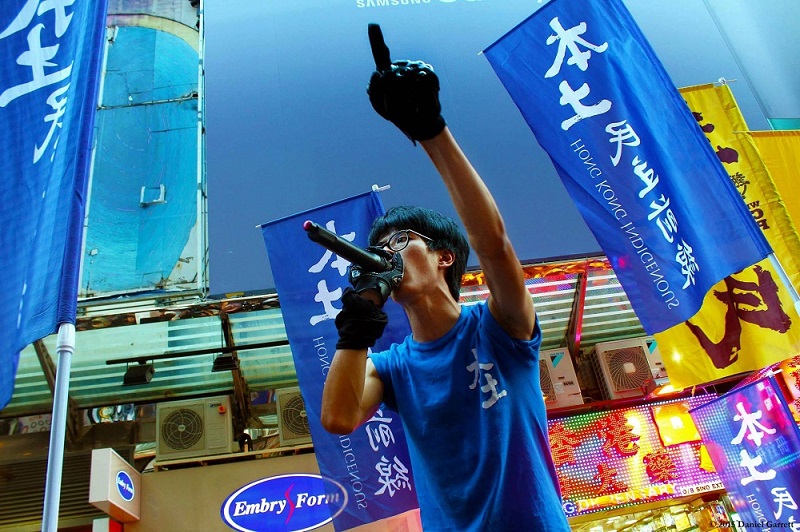
So far, the Hong Kong National Party is the only one to advocate independence as part of its platform. Although Baggio Leung and Yau Wai-ching have been labelled “pro-independence” their party, Youngspiration, has not advocated independence.
In fact, its original position was much closer to that of Demosistō: it too called for a referendum to determine Hong Kong’s political status.
Will any actual political movement grow out of the grassroots enthusiasm for independence? The recent appearance of Hong Kong independence banners and posters at six universities in the first week of the school year indicated that the aspiration is alive.
Because almost all were put up anonymously, it also showed the trepidation independence advocates feel about stepping out of the shadows, given the intimidation by the Party and Hong Kong government.
The crucial question about both self-determination and independence is, how to get there? Their advocates are often criticized as “unrealistic”. But after the fake suffrage fiasco of 2014-2015, can it really be said that demanding genuine universal suffrage is any more realistic than, say, self-determination or independence?
The dilemma for Hong Kong people is that we have no “realistic” recourse to gain our basic human rights, whether the right to universal suffrage or the right of self-determination.
The head-on collision: when localists and self-determinationists tried to enter the system
After the Umbrella Movement there was the question of whether or not to attempt to enter the formal political system. To do so would risk conferring legitimacy on an illegitimate system, while not doing so would give up a platform for propagating their ideas. Eventually, virtually all decided to run for Legco.
The result has been like watching a head-on collision. First, the Electoral Affairs Commission disqualified some candidates on political grounds, citing suspicions that they did not truly accept the Basic Law, especially the part which asserts that the Hong Kong SAR is an inalienable part of China.
In spite of this, the new candidates who were allowed to run did remarkably well.
The Party and Hong Kong government then tried to kick out as many as possible. They have succeeded so far in ejecting six: Baggio Leung, Yau Wai-ching, Leung Kwok-hung, Lau Siu-lai, Nathan Law and Edward Yiu.
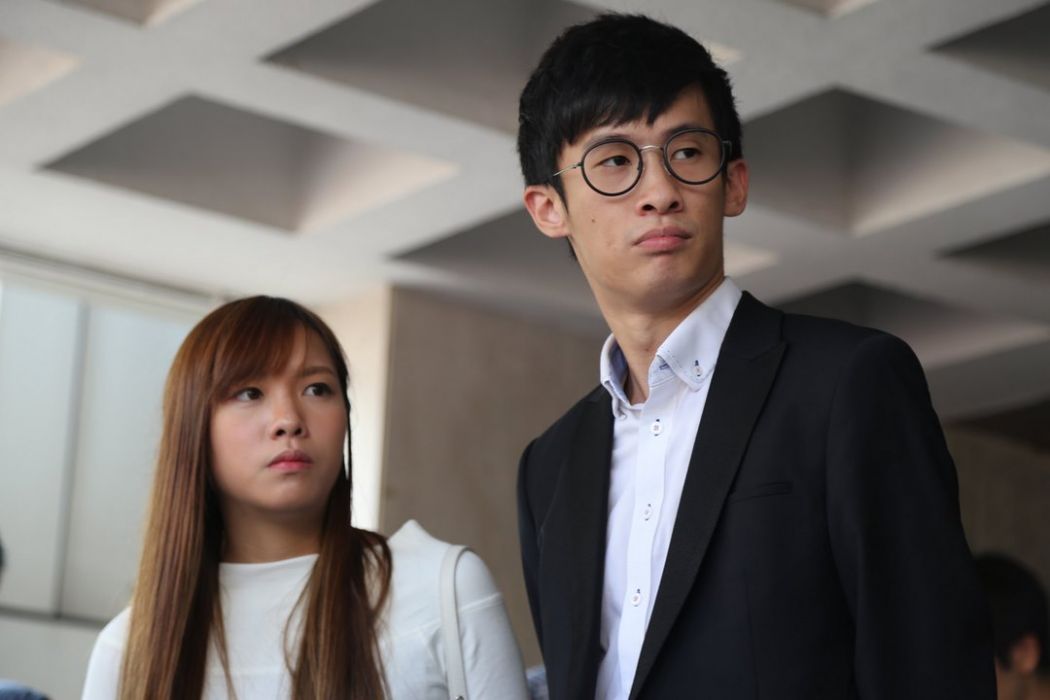
This has sent the message that there is no room for the political views of a great many Hong Kong people inside a rigged political system.
In flushing them out, the Party and Hong Kong government have put their finger on an inherent tension: Can you have so many representatives operating within a system which they do not regard as legitimate?
Pan-democrats had sat in Legco even though they did not accept the lack of universal suffrage, but they never questioned the status of the SAR as “an inalienable part of the PRC”. Now the Party faced a growing number of representatives who regarded the Basic Law and “one country, two systems” as in need of reform… or replacement.
Democratic political systems that work are based on wide consensus that the system is legitimate. When a substantial portion of the population does not consent to the political system, there is a political crisis.
Such is the situation in Hong Kong at the moment. Rather than addressing the problems, the response to this crisis has been to further restrict participation, going beyond the rigged system to new methods (EAC disqualifications, Basic Law “interpretation”, disqualifications of elected Legco members, and criminal prosecutions which render potential candidates ineligible to run) to exclude those who symbolize the lack of consent. These actions further discredit the system.
The pan-democrats
The traditional pan-democrats, meanwhile, have largely buried their heads in the sand. Their response to the denial of universal suffrage has been to continue to demand it. They sometimes seem to be caught in a time warp: Hello? Didn’t the Party already rule that out?
The decision to support John Tsang in this year’s Chief Executive selection threw into question whether they had learned anything. The pan-democrats had several hundred votes, more than ever before, but there were no pro-democracy candidates.
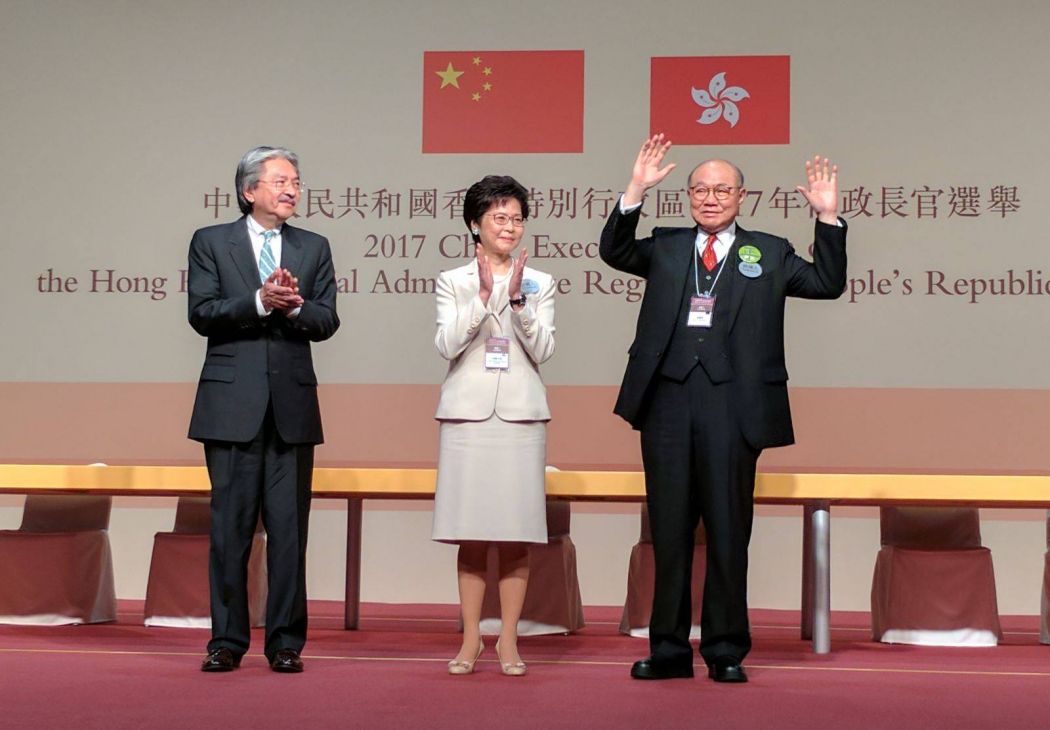
Long Hair declared his candidacy, as he believed there needed to be a protest candidate. The pan-democrats didn’t back him since he stood no chance of getting elected. Instead, styling themselves kingmakers, they went for John Tsang.
Tsang was about as firmly establishment as you can get. His financial policies had for years been to the detriment of the great majority of Hong Kong people, contributing to the greatest income inequality in the world amongst developed economies.
The pan-democrats apparently didn’t understand that the CE selection is rigged, the result predetermined by the Communist Party. After all these years, how could they be so naive?
They have some good young politicians and a solid vote bank, representing moderate voters, so they have a recipe for survival, and their ability to work within the system to express displeasure with the government and frustrate its efforts to enact unjust policies is valuable. But how can they possibly take the lead in finding a way forward?
Making the most of the era of resistance
Looking at localists, self-determinationists and pan-democrats might lead some to conclude that the pro-democracy movement is directionless and diffuse. There’s some truth to that.
Many within the movement have lamented a lack of leadership, and in particular of charismatic leadership, but one should not wish for a saviour. The strength of the movement is that it is based on the people.
It wasn’t because OCLP or HKFS gave the command that the Umbrella Movement took off—the people followed their own conscience. Those looking for strong leadership want a unifying figure, a Mandela. But we are capable of achieving that unity ourselves.
There are lots of good leaders out there, pretty much across the pro-democracy spectrum. Joshua Wong, Nathan Law, Long Hair, Fernando Cheung, Alvin Yeung, Ted Hui, Lau Siu-lai, Chu Hoi-dick immediately come to mind, but there are others.
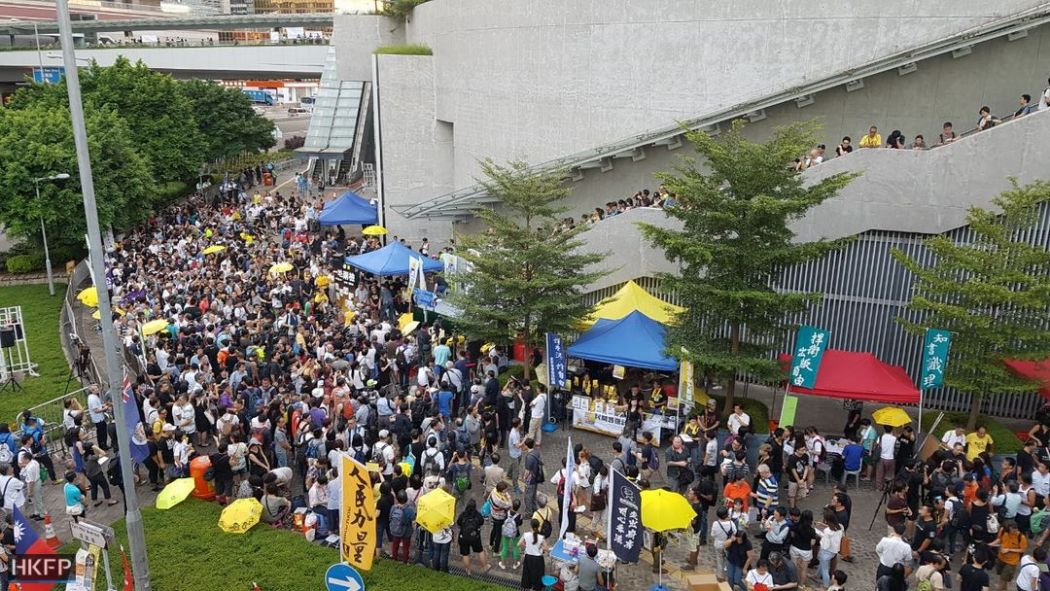
Leadership is not the main problem. The key weaknesses are lack of unity and insufficient strategizing and organizing, and these have been present for years.
Independent civil society is still weak. Pro-democracy political parties are pathetically small. The pro-democracy movement should not be Leninist (like the Party), but it needs to be less laissez-faire and more active in diagnosing and addressing its deficits.
What is needed at the moment is a kind of council bringing the whole pro-democracy spectrum together. It would foster unity and solidarity as well as coordination, communication, and strategic thinking.
Maybe, after the August 20 demonstration, the movement is finally ready for what Benny Tai and Alex Chow proposed in December 2014. Call it the Resistance Coalition. The need for resistance, after all, is something all groups can agree on.
Besides resistance the movement also needs a positive goal. Here, the umbrella term can be self-determination. Thus, a Resistance and Self-Determination Coalition.
Even many pan-democrats espouse what they call “internal self-determination”, which means simply what was promised to Hong Kong to begin with: a “high degree of autonomy”.
As with all coalitions, it would mean everyone compromising somewhere. Pan-democrats and localists would have to swallow their dislike of one another. Pan-democrats would also have to stand up to the Party propaganda that would brand them crypto-independence advocates for even associating with localists.
The localists, in turn, would have to agree not to advocate violence and also to downplay any independence aspirations they may have.
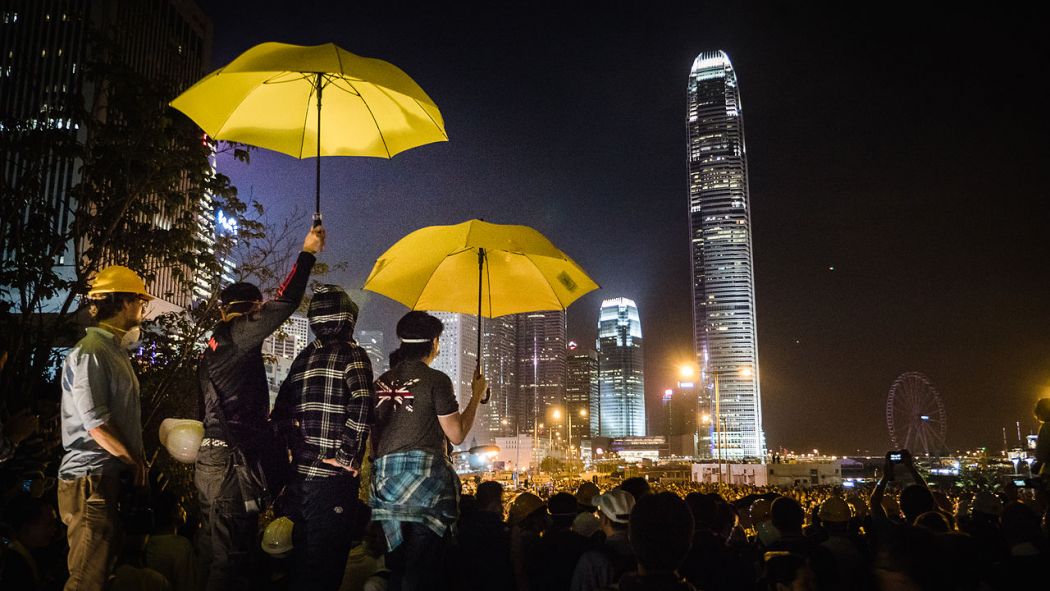
We are in the era of resistance, and this must be embraced. Much of the disillusionment after the Umbrella Movement was due to a desire for quick fixes or magical solutions.
We must rid ourselves of that illusion and see long-term resistance as the effective strategy that it is. Indeed, the fact that widespread resistance exists is in itself an accomplishment as well as a foundation upon which to build.
It is often said that it’s very hard to mobilize people around a long-term objective; people will much more readily respond to something in particular, like the jailing of the 16 political prisoners in August.
But resistance is a culture. It needs to be cultivated, and it should be joyful rather than grim.
The Resistance and Self-determination Coalition would function much like the working group that already exists among pan-democrats in Legco, but be broader and embrace groups both in and outside of Legco.
It would work at articulating and coordinating defensive strategies and tactics—how to prevent the worst from happening, how to resist—and positive ones—how to move toward the movement’s goals, how to attain self-determination.
Besides providing leadership, it must also work to strengthen the presence of the resistance at the grassroots level, through local committees in neighbourhoods and public housing estates, so that it has a presence everywhere in the city. The movement has to organize.
There is a difference between mobilizing and organizing. The pro-democracy movement is pretty good at mobilizing, getting people out on the streets, but poor at organizing.
Most in the pro-democracy movement are still wedded to a mobilization model. According to that model, you have a small group of full-time activists, surrounded by a small core of supporters who can be counted on to mobilize when needed. Between them and the masses, there is a large gap.
This leaves the full-time activists and their supporters isolated and the masses passive and uninvolved, except on the few occasions, like the Umbrella Movement, when they are motivated to join in
The gap between the full-time activists and their supporters, on the one hand, and the masses on the other needs to be bridged in a long-lasting way. The pro-democracy movement needs a presence in every community in the city, and that presence has to be people who live in those places.
Those are the sorts of leaders the movement really needs. If you go to a public housing estate, where half of Hong Kong lives, the first thing you see is the DAB office of the local district councillor. It looks as if the pro-democracy movement has conceded that whole territory to the adversary.
Cultivating a strong network is a basic principle of organizing that the movement hasn’t even started to come to terms with. This period when people don’t see any immediate breakthroughs and seem to be waiting for “the next big thing” is the perfect opportunity to do that sort of constructive, long-term work.
After the imprisonment of the 16 it has become widely apparent to Hong Kong people that the Party and Hong Kong government are ready and willing to eat our kids. That awareness provides numerous opportunities for resistance.

As long as people continue to resist in significant numbers the Party simply can’t have its way in Hong Kong. It’s up to Hong Kong people to support and join the political groups leading the resistance. If localists, traditional pan-democrats and self-determinationists can find ways to cooperate, their power will increase exponentially.
That is easier said than done, and some of these groups are under such fierce attack that their very existence is threatened. The Party would like to emerge from this period having obliterated any group that does not abide by the terms of its rule.
Then again, the Hong Kong resistance and self-determination movement could very well outlast the Party itself. The direction Hong Kong goes will largely depend on the actions of Hong Kong people.
This article is the third in a 5-part series on the Umbrella Movement three years after its beginning in September 2014. The first article is “Why I wrote ‘Umbrella’, a 600-page account of the Umbrella Movement”. The second is “The Umbrella Movement after three years: So much accomplished, and much still to do”. Kong Tsung-gan is the author of Umbrella: A Political Tale from Hong Kong. He envisions a day when September 28 will be Hong Kong’s national day and “Raise Your Umbrellas” its national song.
